
The Haitian Times
www.haitiantimes.com
By Garry Pierre-Pierre
In the late 1960s and early 1970s Haitians were slowly settling in New York’s Upper West Side, then not the tony neighborhood of today. My parents lived there as well and were among thousands of émigrés fleeing Haiti’s descent into totalitarianism of the Duvalier regime.
They would often gather along the mall on Broadway to reminisce about the old country and dream of returning to their sun-drenched nation once the loathed former country doctor had been dispatched, either by a coup d’état or assassination. It didn’t matter.
Eventually Jean Claude Duvalier, his son, was whisked into exile on Feb. 7, 1986, only to return to Haiti as a private citizen in 2011, where he died, penniless, three years later.
Soon after Duvalier’s fall, hundreds of ecstatic Haitians sold their belongings and returned home, but the homecoming did not last long. Haiti was not the same place they had envisioned it to be a decade or so earlier, while sitting on those wooden benches in upper Manhattan where politics was a daily brew. Some who had sold their lucrative taxi medallions and homes eventually came back to the U.S. to start anew, again.
The notion that only one person, the president, can fix what afflicts Haiti is a common misconception of reality that we’ve been repeating since those Duvalier years, both here and in Haiti.
If we get rid of Duvalier, then everything will be fine and dandy. If only Jean-Bertrand Aristide would vacate the power, we could move Haiti forward. Once René Préval leaves, Haiti will experience an economic boom. So on and so forth.
We heard this cry frequently too after Jovenel Moïse was sworn in as president in 2017, and we’re hearing it as I write this column. Ariel Henry, the interim Prime Minister, is the root cause of the gang infestation in Haiti and once he’s gone, we’ll get rid of the gangs and the tourists and diaspora will flock to enjoy our amazing beaches.
People talk of the gangs in Haiti as a law-and-order issue. They fail to understand the system that lures and entraps young men who see toting an automatic weapon and kidnapping innocent people for ransom as a means to a better life.
I hope that by now, sensible people who hear such gibberish will set the record straight and let the culprit know that the problems of Haiti did not start with one person and won’t end with one either. The reality is that we never had a chance to develop as a nation and our struggles continue today and beyond, unless there is a real coming together to set a roadmap for development.
A year after Moïse’s assassination, we’ve reached the abyss with no one providing any rope or lights to pull us out. The political class’ muteness is deafening. They don’t speak as much as they used to be because their words are now more transparently meaningless, and they know their prescription only alleviates their personal interests and not that of the nation. People are onto their games and are not playing.
The situation is truly dire. Those who can leave have done so in droves. By default, the Dominican Republic has become essentially a refuge for Haitians who don’t have visas to the U.S. and Canada, or who can’t retire in Haiti from their time abroad. The rickety boats loaded with human cargo are once again plying the seas seeking to make it to the United States.
People talk of the gangs as a law-and-order issue. They fail to understand the system that lures and entraps young men who see toting an automatic weapon and kidnapping innocent people for ransom as a means to a better life.
The gangs are patient. They’ve waited out both the U.S. Marines and the U.N. forces to rule the streets of Port-au-Prince and some other cities across Haiti. They’ve become savvy and well organized. They count former and current police officers among their ranks and sympathizers. They drive public sentiment through heavy use of social media. They use military tactics, they control huge swaths of territory and they are entrenched in Haiti’s social fabric.
Brian A. Nichols, the U.S. Assistant Secretary of State for Western Hemisphere Affairs, has been promoting this novel concept of a “Haiti-led solution.” But I suspect that the veteran diplomat is hedging his bets, knowing full well that the Haitian political class doesn’t do anything unless they feel that the embassy or Washington is on board. You see, the problem here is the Americans never took off the training wheels when it comes to nation-building and now they want the Haitians to pedal the bicycle.
What groups have been talking about a meaningful solution that’s good for the country? What are some of the plans for a better Haiti? What are the best options for development? These are basic questions that few people in power in Haiti are asking themselves. So how do you want to implement a Haiti-led solution?
In my best estimate, we’re about five years away as diaspora from any worthwhile participation in the affairs of our troubled homeland. Hence my optimism for Haiti.
I’m all for a Haitian solution. But Nichols knows that we’re not ready for that at this juncture. Efforts have been made to get the diaspora in the mix. That has not panned out because we, too, have our challenges and are not equipped for that role.
In my best estimate, we’re about five years away as diaspora from any worthwhile participation in the affairs of our troubled homeland. Hence my optimism for Haiti. I deeply believe that we have the skills and resources to turn things around, but we need the people in Haiti to invite us to work on this Herculean undertaking with mutual trust and respect.
As we reflect on the events in Haiti since that fateful night on July 7, 2021 — when Moïse was gunned down inside his bedroom — we must ask ourselves what kind of nation and people we’ve become. And we must be brutally honest with ourselves when we answer.
Moïse, like all of us, was deeply flawed and was uniquely unqualified to be president. But the process allowed him to assume the presidency, despite our wishes.
Democracy is messy and fragile. What we must learn is that we all must partake in its nurturing. Leave it to its own and it wilts away, becoming ever more difficult to restore.
A Hard Rain’s A Gonna Fall, a song written by Bob Dylan in my birth year of 1962, captures today’s reality in Haiti:
Where the people are many and their hands are all empty
Where the pellets of poison are flooding their waters
Where the home in the valley meets the damp dirty prison
Where the executioner’s face is always well hidden
Where hunger is ugly, where souls are forgotten

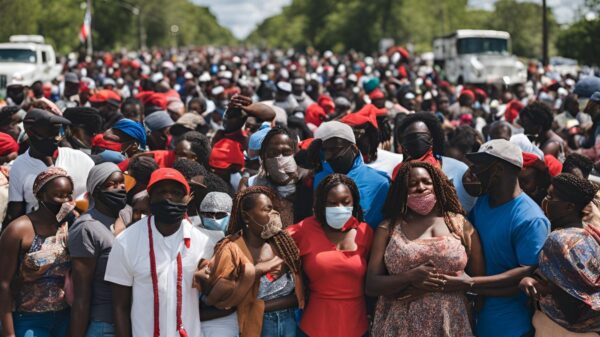
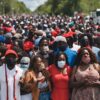
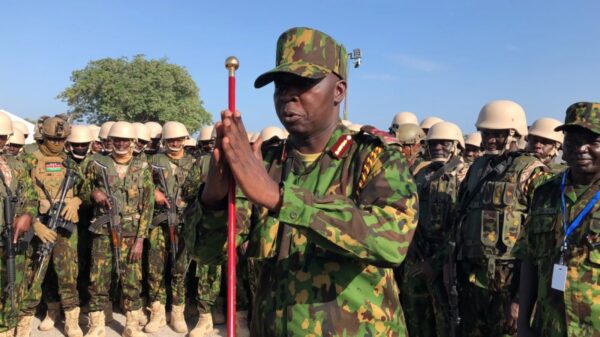

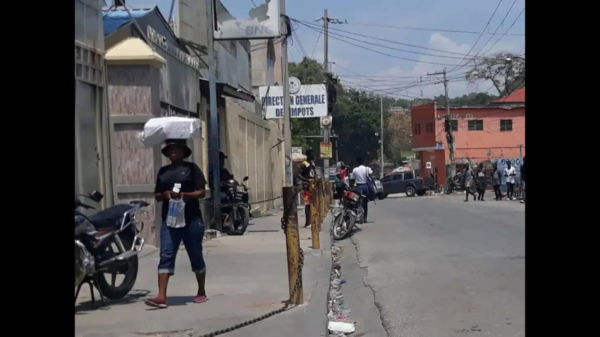
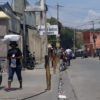
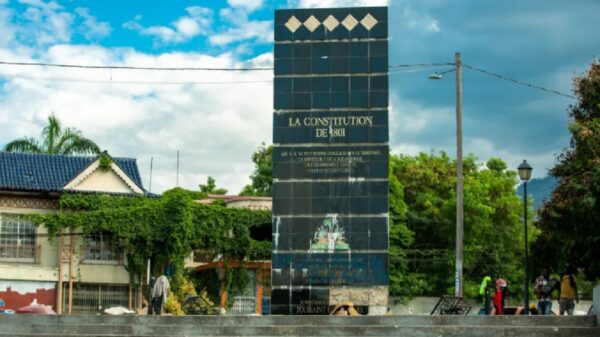
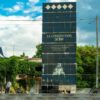
You must be logged in to post a comment Login